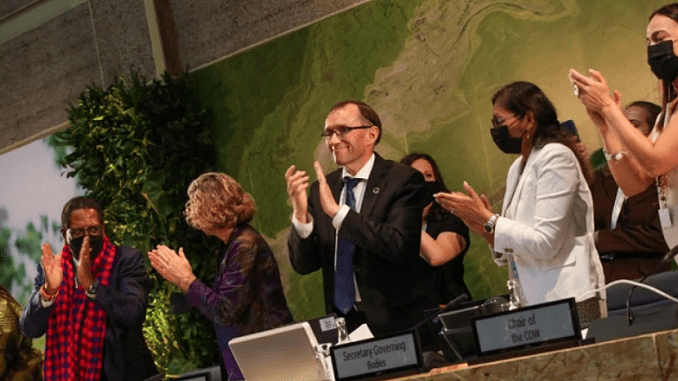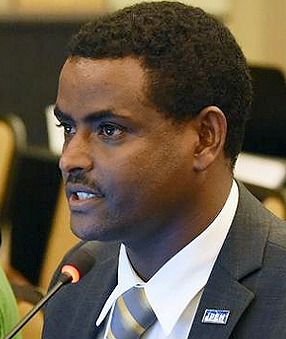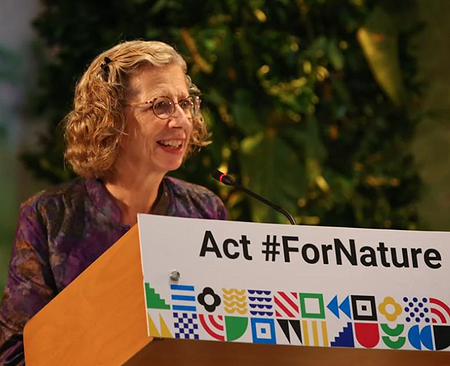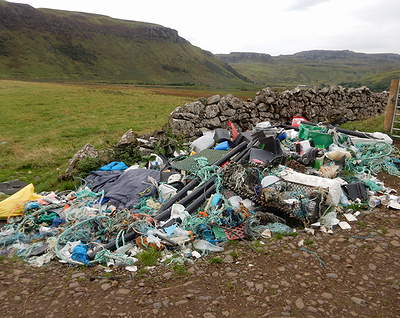
NAIROBI, Kenya, March 3, 2022 (ENS) – To tackle plastic pollution accumulating across the globe, governments at the UN Environment Assembly here Tuesday approved the start of talks later this year to draft a legally binding agreement – a treaty – that would promote sustainable production and consumption of plastics and prevent their pollution of the environment.
Heads of state, ministers of environment and other representatives from 175 nations endorsed this landmark agreement that addresses the full lifecycle of plastic from source to sea.
Plastic production has risen exponentially in the last several decades and now amounts to some 400 million tons per year – a figure set to double by 2040 according to the UN Environment Programme, UNEP.
After 10 days of intense negotiations governments adopted three resolutions on chemicals and plastics at the resumed Fifth United Nations Environment Assembly, abbreviated UNEA 5.2, convened by UNEP, which is based in Nairobi.
In addition to the plastics treaty resolution, delegates agreed to start discussions to create a scientific panel on chemicals, waste, and pollution prevention.
And, they passed a resolution that renews the program providing financial support to developing countries that establish programs for the “sound management” of chemicals and waste.
This third resolution calls for a new report on the state of the science on endocrine-disrupting chemicals. These chemicals are linked to “numerous adverse human health outcomes including alterations in sperm quality and fertility, abnormalities in sex organs, endometriosis, early puberty, altered nervous system function, immune function, certain cancers, [and] respiratory problems,” according to the Endocrine Society, a group of medical researchers and clinicians.
IPEN, the International Pollutants Elimination Network, with over 600 organizations in 125+ countries, expressed hope that a global plastics agreement would be effective in curbing toxic chemicals.
“The treaty should help prevent health threats from the widely used hazardous chemicals embedded in plastics, such as endocrine-disrupting chemicals. These chemicals include phthalates, bisphenols, brominated flame retardants, and PFAS, also known as ‘forever chemicals.’ All of these are chemicals known to cause severe harm to health. When recycled, these chemicals can potentially expose vulnerable populations to health threats,” said Vito Buonsante, IPEN policy and technical advisor.
Buonsante said the California-based nonprofit is pleased that the plastics treaty resolution scopes all impacts throughout their lifecycle. “The important work now starts,” he said, “ensuring that the health impacts of plastics, including microplastics and hazardous chemicals, will be covered by the future treaty.”
IPEN says legally binding provisions are necessary to reduce the use of plastic products. Semia Gharbi, IPEN Regional coordinator for North Africa and the Middle East, said, “Plastics are poisoning the circular economy, and the UNEA decision should now start an honest discussion about the toxic chemicals used to make plastics.”
Governments approved updating a report on the “State of the Science of Endocrine-Disrupting Chemicals, EDCs,” published in 2012, urging countries to take further action to reduce or eliminate the risks associated with EDCs.

Ethiopian environmental scientist and IPEN Co-Chair Dr. Tadesse Amera said, “EDCs are everywhere, from plastics to pesticides, and this class of hazardous chemicals are linked to cancer, reproductive harm and more. Updating the EDC report should help to move this science to policy action.”
“We are particularly concerned with potential industry interference, who continue to deny the science, noting the recent EU court case on the plastic chemical BPA, where the industry tried to deny the science linking BPA to triggering human hormones and threatening public health,” Dr. Amera pointed out.
“Africa needs global action on EDCs and labeling of EDCs in plastics and pesticides to protect our borders from these chemicals coming in,” he said.
UNEP Executive Director Inger Andersen congratulated the UNEA 5.2 negotiators on “the amazing job” they did by agreeing on numerous resolutions and catalyzing action to address the triple planetary crisis – climate change, biodiversity loss and pollution.

“The resolution is the most significant environmental multilateral deal since the Paris accord,” said Andersen, referring to the climate change agreement signed in Paris in 2015. “It is an insurance policy for this generation and future ones, so they may live with plastic and not be doomed by it.”
Andersen believes that the three “resolutions will shift the needle if they create real world impact,” and called for implementation and support at the highest political level.
Representing UNEP’s host country, Kenya’s Environment and Forestry Secretary Keriako Tobiko spoke on behalf of President Uhuru Kenyatta. He said that “the science is crystal-clear” about the human pressure on the planet. “We have crossed the planetary limits, threatening the stability of global ecosystems,” he warned. Praising all the agreed draft resolutions, Tobiko called for “wholesome, multifaceted approaches” and strategic actions to address the existential challenges to humanity.
Responding on how to close the global biodiversity funding gap, Achim Steiner, administrator, UN Development Programme and a former UNEP executive director, pointed out that “hundreds of billions of dollars are spent on harmful financing,” highlighting nature-negative agricultural subsidies, which deplete the natural resource base.
On February 11, the governments of the United States and France released a joint statement in support of a global agreement among nations to curb plastic pollution. Joshua Baca, the American Chemistry Council’s vice president of plastics, said his organization backs the concept of an agreement.
“America’s plastic makers fully support a resolution at the upcoming UN Environment Assembly to begin negotiations on a legally binding global agreement to curb plastic waste in the environment. We believe such an agreement will accelerate progress towards a circular economy most effectively through binding and non-binding commitments,” Baca said.

In September, America’s plastic makers released a statement of Five Principles to eliminate plastic waste. “The plastics industry is accelerating progress towards circularity through innovation in product design, use of recycled plastics, and technology deployment,” Baca said. “A global agreement will help scale solutions by improving the foundation of the circular economy: universal access to waste collection.”
Marianna Muntianu, a Russian youth activist, founder and president of the Russian Climate Fund, highlighted efforts undertaken by her organization aimed at reforestation. She emphasized that younger people are doing everything they can, using all the skills at their disposal, to protect nature. But environmental protection can be difficult.
Every year an estimated eight million tons of plastic waste enters the oceans. On land, in the United States alone about 42 million metric tons of plastic waste is generated each year. This total is more than all European Union member countries combined. So much plastic gets into the environment in three basic ways:
- – industrial byproducts and fishing industry discarded equipment
- – illegal dumping or poor waste management on or near beaches
- – microplastics from laundry and personal care products
Still, negotiators have a few building blocks in place already to further a treaty governing plastics.
The Global Commitment is led by the Ellen MacArthur Foundation, in collaboration with the UN Environment Programme. Through the Global Commitment, businesses and governments commit to change how we produce, use, and reuse plastic.
They will work to eliminate unneeded plastic items; innovate so all required plastic is designed to be safely reused, recycled, or composted; and circulate everything to keep it in the economy and out of the environment.
The Global Commitment has already mobilized over 500 signatories that are determined to start building a circular economy for plastic. These include companies representing 20 percent of all plastic packaging produced globally, some of which are well-known consumer businesses such as L’Oréal; MARS; Nestlé; PepsiCo; The Coca-Cola Company; and Unilever; as well as the world’s largest retailer – Walmart; major packaging producers such as Amcor and Berry Global; and two of the largest resource management specialists – Veolia and Suez.
On UNEA 5.2’s approval of talks to draft a plastics treaty, Ellen MacArthur, founder and chair of trustees of the Ellen MacArthur Foundation, said, “This is a key moment in the effort to eliminate plastic waste and pollution on a global scale. The mandate agreed by UN member states opens the door to a legally binding treaty that deals with the root causes of plastic pollution, not just the symptoms.
“Critically,” MacArthur said, “this includes measures considering the entire lifecycle of plastics, from its production, to product design, to waste management, enabling opportunities to design out waste before it is created as part of a thriving circular economy.”
Featured image: A standing ovation was the response to the adoption of the resolution on a global plastic pollution treaty. The three central people, from left: Kenya’s Environment and Forestry Secretary Keriako Tobiko (in checked scarf); UN Environment Programme Executive Director Inger Andersen of Denmark; UNEA President Espen Barth Eide of Norway. (Photo courtesy Earth Negotiations Bulletin)



